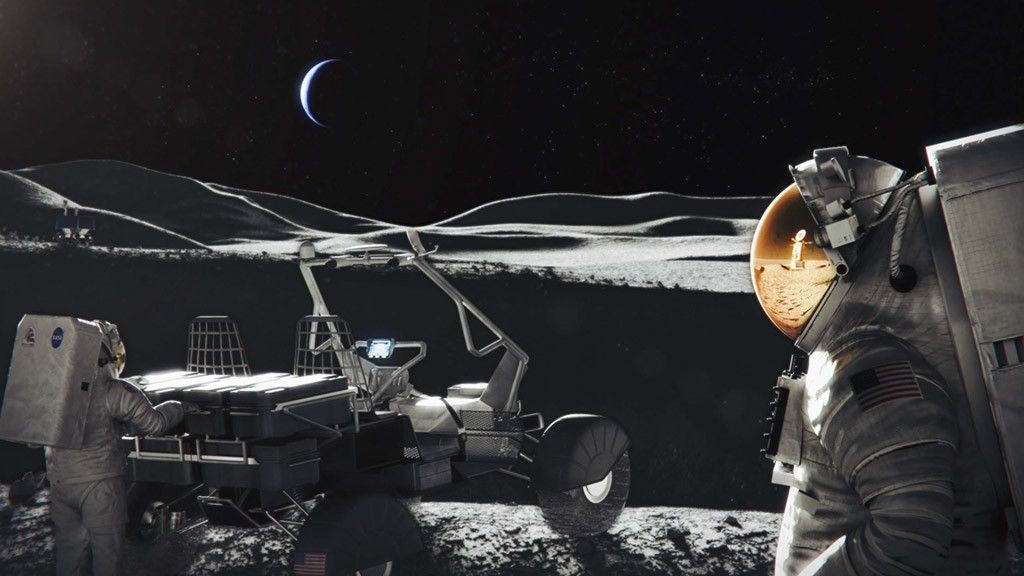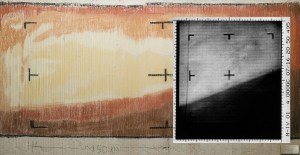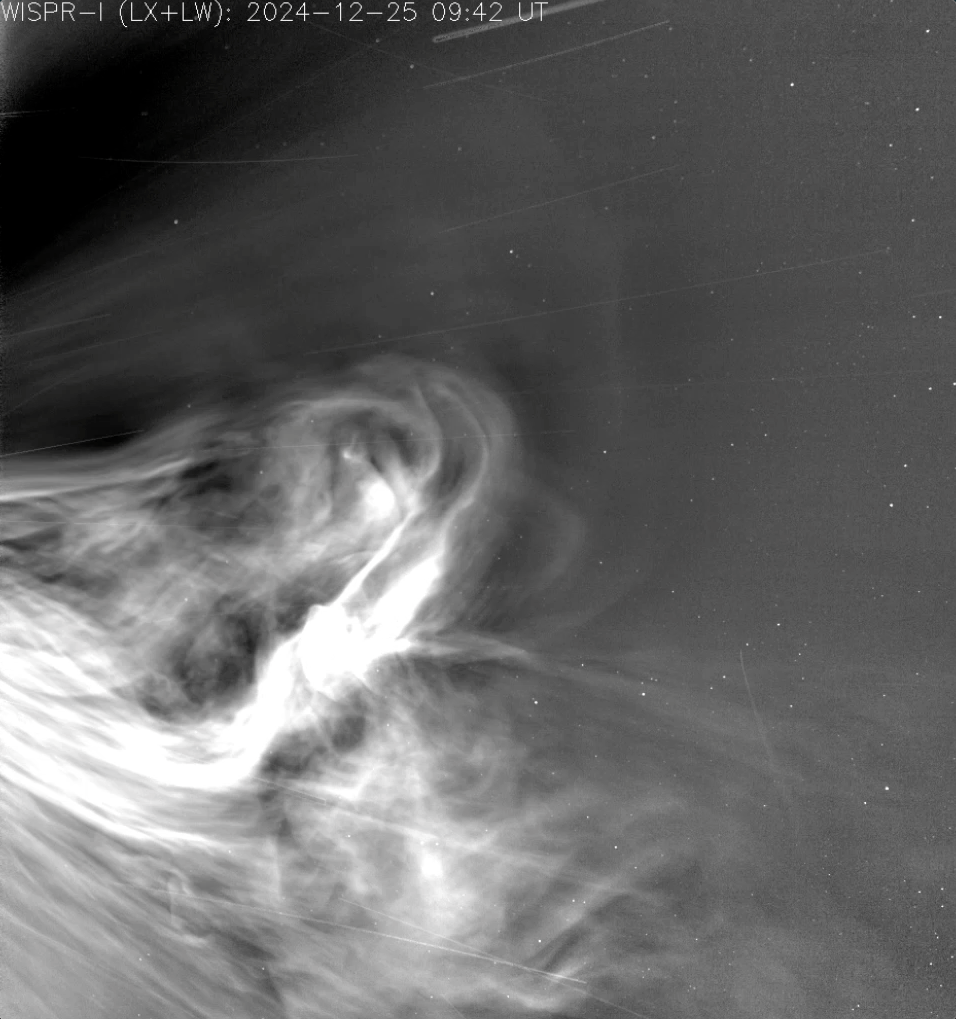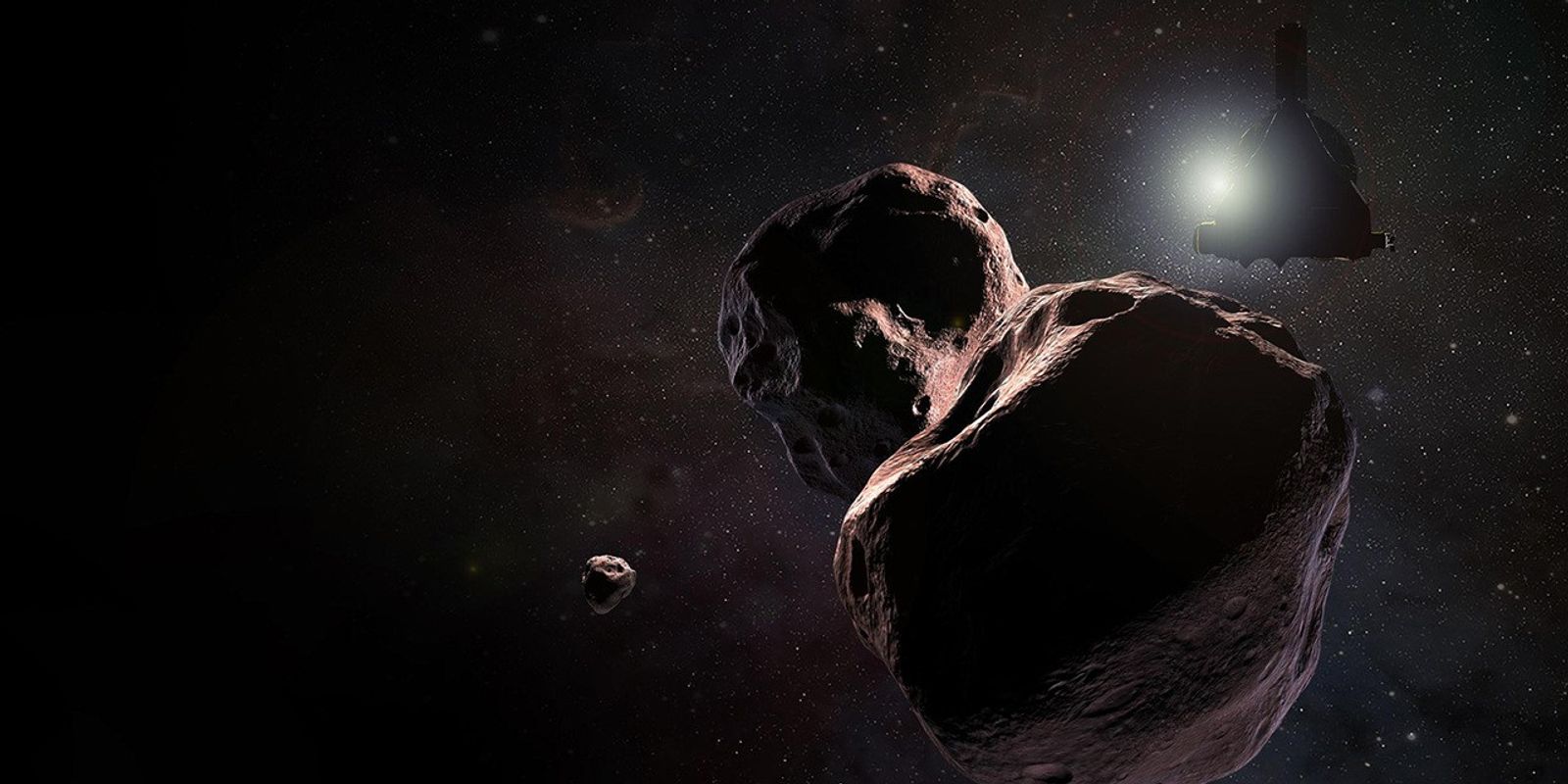Cassini Significant Event Report
For Week Ending 11/14/03
The most recent spacecraft telemetry was acquired from the Goldstone tracking station on Wednesday, November 12. The Cassini spacecraft is in an excellent state of health and is operating normally. Information on the spacecraft's position and speed can be viewed on the "Present Position" web page.
On-board activities this week included transition to Reaction Wheel Control in preparation for Gravitational Wave Experiment (GWE) #3, ACS X-Band body vector update, and biasing of the reaction wheels.
Instrument activities included a Radio and Plasma Wave Science (RPWS) high frequency receiver calibration, Imaging Science Subsystem (ISS) data compression check, Ultraviolet Imaging Spectrograph solar port calibration and bright star observation, Composite InfraRed Spectrometer flight software upload to the solid state recorder, Ion and Neutral Mass Spectrometer power on - pressure test - memory dump and power off, and an eight day RPWS Saturn orbit insertion instrument expanded block test.
As part of this week's activities, ISS successfully acquired 100 star images and 393 Saturn images. The Multi Mission Image Processing Laboratory automated downlink subsystem processed and delivered these to the ISS Science Team at SSI at a rate of 3 seconds/image.
The Radio Science Subsystem (RSS) Gravitational Wave Experiment (GWE) #3 started on the evening of November 9 over Goldstone's DSS-25 station. The experiment will continue for 20 days with continuous DSN support. The spacecraft will remain on reaction wheel control for the duration of the experiment. The Ka-band transmitter at DSS-25 has been restored to operations, although at a lower output power, and without redundancy. The DSN engineers are working towards returning it to the nominal 800 Watts in the future.
Development of the C42 background sequence is on track. The merged products for the Preliminary Sequence Integration and Validation (PSIV) cycle 1 phase have been released. As there have been no changes to the DSN allocation file, and simulation of the sequence is not required, the PSI&V Science Allocation Panel, Simulation Coordination, and Simulation Procedure Review meetings were cancelled.
Preliminary port1 for the Science Operations Plan Implementation process was reached for tour sequences S19 and S20, and preliminary port 2 for S05 and S06.
Official ports were reached for two sequences as part of the Science Planning Team process. C43 passed its third and final port with the merged product currently being run through Kinematic Prediction Tool (KPT)/ Inertial Vector Propagator (IVP). C44 reached its first official port. The product was merged and delivered to ACS for KPT/IVP analysis.
A Project Software Monthly Management Review was held to review status of Spacecraft Operations Office and Uplink Operations tools. Development continues on schedule
A Delivery Coordination Meeting was held for Mission Planning's version 5.1 of AP_DOWNLINK.
Additional information about Cassini-Huygens is online at http://saturn.jpl.nasa.gov.
Cassini will begin orbiting Saturn on July 1, 2004, and release its piggybacked Huygens probe about six months later for descent through the thick atmosphere of the moon Titan. Cassini-Huygens is a cooperative mission of NASA, the European Space Agency and the Italian Space Agency. JPL, a division of the California Institute of Technology in Pasadena, manages the mission for NASA's Office of Space Science, Washington, D.C.
Media Relations Office
Jet Propulsion Laboratory
California Institute of
Technology
National Aeronautics and Space
Administration
Pasadena, Calif. 91109.
Telephone (818) 354-5011



































